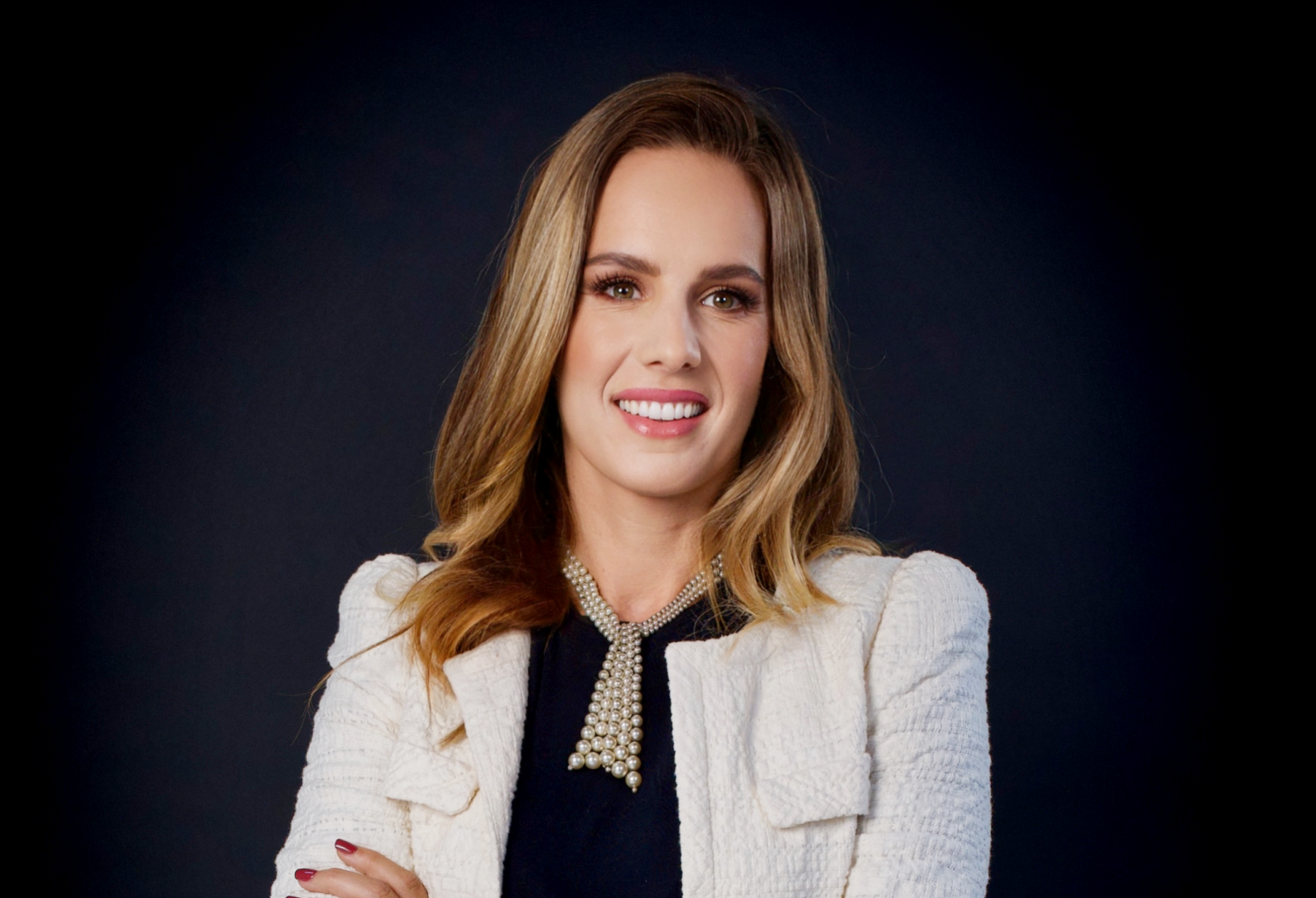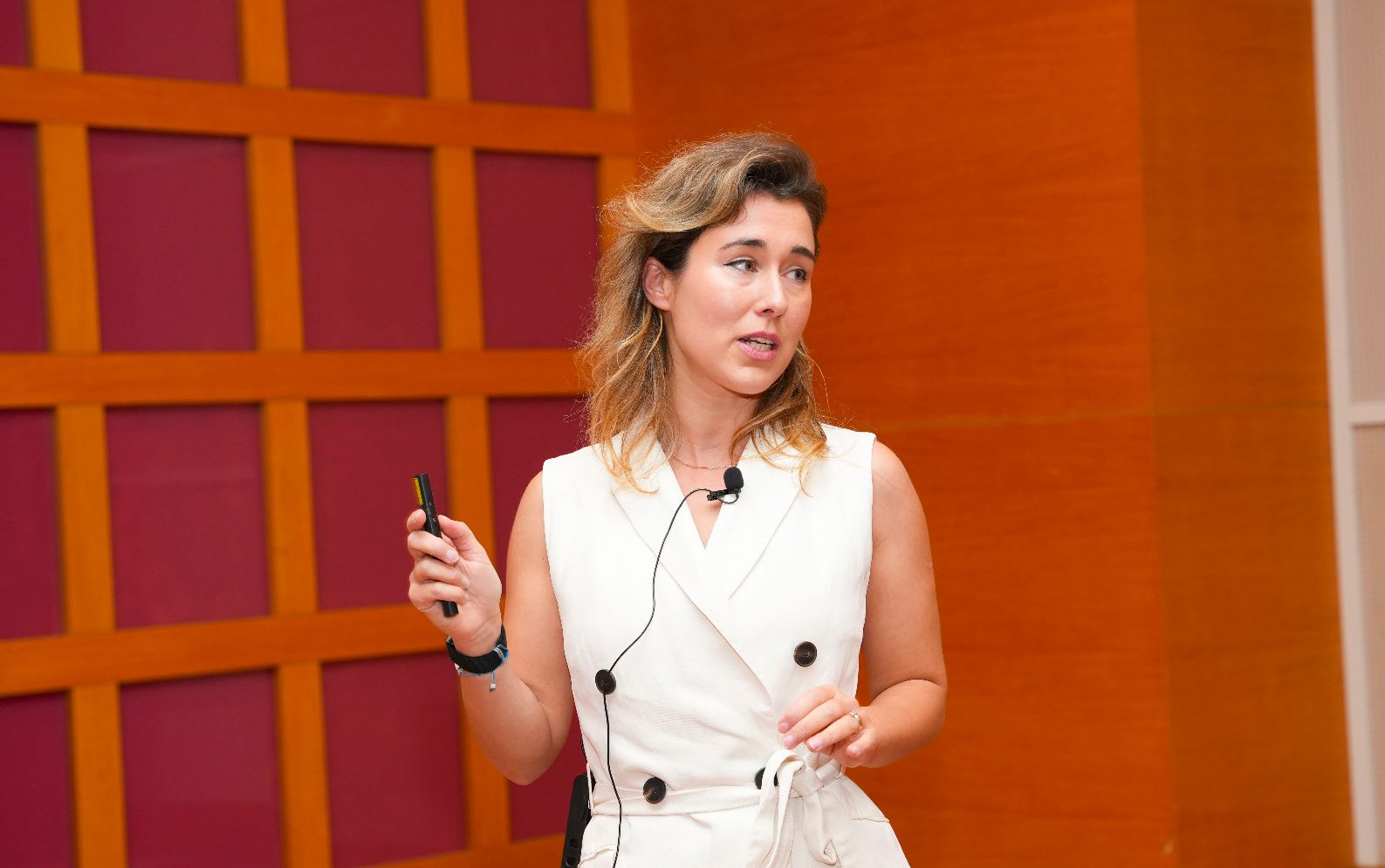Certified counselor and Neurolinguistic Programming coach and practitioner Hala Kazim set up her own consultancy.
Following a series of remote hiking trips, certified counselor and Neurolinguistic Programming coach and practitioner Hala Kazim set up her own consultancy company Journey Through Change (JTC) in a bid to offer her clients the same experiences that have helped her overcome social restrictions and her fears.
How? By detaching them from daily familiarities and taking them on a journey to their inner selves through physical activities, workshops, and lectures. Why hiking?
I read about the famous path in Spain, Camino de Santiago, in a Paulo Coelho book, and one day I decided to hike it. I did the hike for seven days and then did another in Austria – by myself – that was very hard, I hiked in the forest alone for the first time, and then I did Switzerland too. It was very rich and I thought, why don’t I bring women from our region to do something like this? So I started. I just wanted to try something new, because we don’t have hiking [in our culture]. We’re a desert country. It was eye-opening.
What are the trips meant to teach or offer clients?
It’s a journey to yourself. When I did it, first I learned to be my own friend. When you walk alone for hours, you make a choice to be your own friend and it teaches you how to face your fears and do things you don’t want to think about.
Lots of things happen while you walk. It’s a process, you don’t just accept yourself. So I take you away from your community, your husband, your children and you’re alone with me and a few ladies you hardly know. We do a lot of lectures, workshops. We have activities like horse-riding, hiking, kayaking, cycling, cooking classes. Each trip has its own [itinerary].
What was the reaction to JTC when you first started, and who is your target market?
The pilot was three people I knew and it worked very well. I knew that while walking, you really could learn so much about yourself. It was just hiking then I added consultation then lectures and activities. It’s been 10 years now and we have women aged 20 to 70. I didn’t expect to have so many different ages. It’s mostly women from the GCC but I’ve also had clients from India, Jordan, Palestine and Syria.
What did you do before starting JTC?
I’m an artist so I used to paint, but I didn’t enjoy it. I just knew I was good at it. I used to have exhibitions and sell my art. It wasn’t my passion, I just knew how to do it.
Do you consider yourself to be a life coach?
I give my life experience and I share it with people from whatever I’ve learned and studied. I’m a combination of things. I do counselling and I mentor. I have different activities through JTC and one of them is the trips that I take.
We do workshops, counselling, hiking, and meditation. I help anybody who wants help whether you don’t like to go to work or you have an issue with your husband or you’re curious about life and want to find your passion. I help people help themselves. I don’t change anyone.
What are your thoughts on life coaching?
Not anybody can just go and council and coach. So many [life coaches] I know have so many issues. Go solve your problem first before you go and help someone. They come under a lot of temptation and say, “I can help you cure your depression”, but I saw them in workshops. Only a psychiatrist or psychologist can help you [with that]. It’s very sad that we misuse the word life coach.
There’s been a lot of controversy over high prices for life coaching. What is your take on pricing?
It’s a market. I don’t think anybody can tell you how much you should charge. People should be wise. If I’m putting that much money, what am I getting? People have to understand [what they’re paying for]. We have to spread more awareness.












